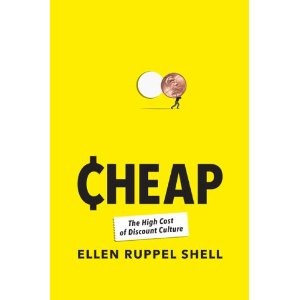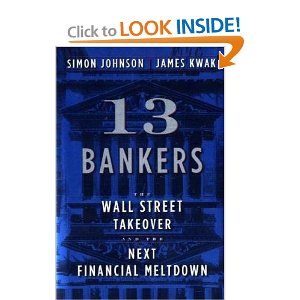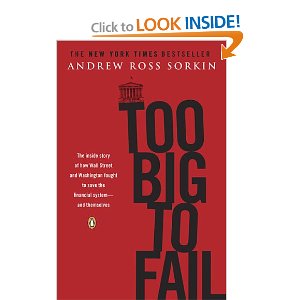Archive for category Uncategorized
CAN Europe be saved?
Posted by shoshievass in Uncategorized on January 22, 2011
Nobel Prize winner Paul Krugman asks the question:
http://www.nytimes.com/2011/01/16/magazine/16Europe-t.html?_r=1
Discussion to follow soon…
Simon Johnson on Facebook and Goldman
Posted by andywuandywu in Uncategorized on January 6, 2011
Simon Johnson, the former chief economist at the International Monetary Fund, co-author of “13 Bankers”, and professor at the MIT Sloan School, on the Goldman Sachs/Facebook deal.
Why do we Procrastinate?
Posted by johnwang in Uncategorized on October 21, 2010
Lately, I’ve been thinking about why people procrastinate. Hunt Allcott, a visiting professor in the Econ Department, talked about the prevalence of procrastination in his UEA Lunch. Allcott noted that procrastination seems to occur quite frequently, and that many psychological studies have shown that people prefer to procrastinate instead of smoothing work of a certain period of time. But in theory, you would expect that people would finish a constant amount of work each day, until the task is finally completed. Thus, if you have W amount of work, and have N days until you need to complete it, you would finish W/N amount of work each day.
Obviously, this doesn’t seem to be the case empirically. People procrastinate all the time, not just about long, arduous assignments, but also about quick tasks (like doing laundry). It seems, though, that people procrastinate less for quick tasks. If something can be done in a couple minutes, people tend to get it out of the way. However, people tend to really put off longer assignments, like studying for an exam (which you could conceivably have an entire semester to study for).
I came across a paper that explained many of these phenomena. For instance, it went over why people procrastinate at all when it seems in their best interests to complete work at a steady pace. The paper creates a model that incorporates the utility derived from not working. The authors, Markus Brunnermeier, Filippos Papakonstantinou, and Jonathan Parker, posit that overconfidence in one’s own ability to do a certain task leads to incorrect planning. The authors argue that people usually only view the “best case scenario” so that people drastically overestimate their ability to quickly finish a task. However, this overconfidence actually optimizes a person’s utility function. For instance, suppose a task can be completed in two time periods. If a person procrastinates, that person will have more work in the second period, and thus have lower utility during that period. However, during the first period, one’s utility is increased by multiple distinct factors. First, the person gains utility from not actually completing the task. Second, the person gains from expecting to have little work in the second period because of overoptimism. Finally, in the first period, the person has a decrease in perceived uncertainty about the amount of work required (the person thinks he/she knows exactly how much work will be required because of his/her overoptimism). The combined effect of less actual work, less expected work, and greater certainty in the first period outweighs the added work one gains in the second period. Thus, procrastination is actually optimal in terms of maximizing a person’s utility function (the paper proves this in terms of their model in Appendix B).
This paper is exciting not just because of its conclusions, although I always have wondered why people (including me) put things off for so long, but because it also shows the enormous flexibility of economics and economic modeling in particular. One can use economic analysis to explain many different phenomena, even if they do reside in the psychological or sociological realms.
5 summer reads to squeeze in before Fall 2010!
Posted by Maggie L. in Uncategorized on August 12, 2010
What should you do with the remaining month? I’m sure many of you are wrapping up your internships, UROPS, research (or maybe you’re travelling abroad). Whatever the case, you should grasp onto the tail end of summer and squeeze in some time to read up on some leisure books. Below are a few of my favorites from the summer:
1. Cheap
A very interesting look into the history and consequences of discount stores on both consumers and our economy. Did you know that Ikea’s President negotiated trade terms with the prime minister of Vietnam? Neither did I!
2. 13 Bankers
A very exact and thoughtful account of what led to the Financial Meltdown. One of the Co-authors is actually a Sloan Professor. Take a crack if you want to get down to the details on the financial meltdown.
3. The Hollywood Economist
 Just another look into what you can do with your Course 14 degree…fascinating peek into the finances of the film industry and what the boxhit figures really mean.
Just another look into what you can do with your Course 14 degree…fascinating peek into the finances of the film industry and what the boxhit figures really mean.
4. Too Big To Fail
Another post-recession book. Krugman cited it during his spring talk at MIT. It’s massive, slightly daunting, and altogether holds some pretty ominous predictions for the future. However, there’s probably no other time you can tackle this monster except for the summer.
5. Delivering Happiness
This book is actually still on my reading queue. I’m trying to get to it before the start of school- it’s an account of Tony Hsieh, the founder of Zappos – the highly successful online retail company- and his success.
Grad Classes in Course 14 (Part 1)
Posted by Christian in Uncategorized on June 16, 2010
Thinking about grad school? Consider taking grad classes before applying. Trust me, you won’t regret it. For one, you get a flavor of what a Ph.D. program requires of its students (math, math, math). Second, you get to view economics from a different, more formal perspective (though not entirely removed from a 14.04 or 14.32 point of view). Conditional on you succeeding in such a course, you also get to signal to the Ph.D. admissions committees that you’re tough enough to complete their program.
This past Spring, I took 14.382 and 14.387 with Professors Hausman and Angrist, respectively. By mid-semester, I was calculating asymptotic distributions in my sleep and had whole sections of Mostly Harmless Econometrics memorized. The problem sets were brutal and holistically tried my econometrics skills, from Stata and Matlab programming to probabilistic convergence theorems. After this experience, theoretical econometrics no longer features in my list of future research goals. Instead, I feel that I’ve gained an arsenal of tools to better approach applied economics fields. For example, I’m thinking of taking 14.771, a course where many of the techniques I learned this semester (e.g. diff-in-diff, Wald estimators, clustering) will come up again.
In my next post, I’ll be a bit more specific about the grad classes here at MIT and distinguish between first-year and second-year classes.
How to apply for an NSF Fellowship
Posted by cwuz in Uncategorized on June 11, 2010
I won an NSF fellowship for graduate school this spring, and someone asked me for advice on how to apply. The NSF Graduate Fellowship gives you a stipend of $30k for three years of study, and also contributes $10.5k to your school for each of those three years. The NSF gave out ~40 fellowships for economics last year, and they were split between 1st- and 2nd-year students is some uneven proportion (I think you’re move likely to win one for 1st year).
The application has three essays: personal statement, prior research, and research proposal.
My prior research and personal statement were fairly boilerplate, and I wrote about what I did during UROPs and summer jobs. I’m not sure what they like for the personal statement, but from what I found online, I did what you’re usually not supposed to do for college entrance essays: list a bunch of stuff, talk about why it’s important, link it together with what I enjoy about economics and what subfields I’d like to do research in. Don’t be too poetic, I don’t think it’ll be appreciated.
Teaching and Economics
Posted by Anthony Rindone in Classes, Uncategorized on April 9, 2010
Note that I did not title this “Education Economics.” Rather, the focus is on the element of teaching the subject, and not the field of economics that examines problems relating to education as a whole.
Over the past three years, I have tutored around 14 or so different students in microeconomics (14.01) Probability (14.30) and Econometrics (14.32). I have also been able to lead the 14.01 Exam Review sessions in large lecture halls for the the past two semesters. During this time, I have gathered a bit of “data,” if you will, on how students learn economics.
At MIT, probability and econometrics are not tough subjects to tutor, due to the fact that most have such strong mathematics backgrounds, and thus most questions are centered on how to apply equation X to problem Y. “How does Bayes’ theorem apply here? What could the omitted variable be in this problem?” And so on…
But introductory microeconomics (14.01) gives many people a bit of trouble. Much of it stems from a textbook that focuses on math over concepts; yet much of it lies in developing a new mindset, a new set of intuitions. Thinking as an economist is matched by few others. And development takes time, little of which MIT students have.
One student asks me: “What’s the difference between ‘long term’ and ‘short term’ in production?” Another asks: “If perfect competition ensured 0 profits in the long run, why would any firms go through the trouble of starting a business?” Finally: “Isn’t this model an oversimplification?”
All are good questions; yet they are also quite revealing. The students could recall from memory the exact equations involving solving optimization problems, but the students also desire a deeper qualitative understanding, which may not be emphasized enough.
(Though the observant economics student could point out that this may be a problem of a small sample size, of which I will not hesitate to agree on the possibility.)
Thus if you are reading this and are struggling through the introductory classes, relax…The moment when it all clicks is a beautiful one that will make the effort all the more satisfying.
Reflections on the Housing Market
Posted by Maggie L. in Uncategorized on February 7, 2010
For the last few years, we have shed many tears
Living through a recession.
The economy’s broke and it’s not a joke,
When we talk of another depression.
Fifteen million without a job,
Foreclosures and banks that fail,
401K’s became 201K’s,
And everything’s up for sale.
How can it be? What didn’t we see
That led to all of this trouble?
There is little doubt that the proximal cause
Was a bursting housing bubble.
But other than that, who can we blame?
And what do they lament?
Millions of people contributed to
This hundred-year event.
Continued here: (http://www.pbs.org/newshour/updates/business/jan-june10/case_02-04.html)
PAUL KRUGMAN @ MIT
Posted by Manisha in Uncategorized on January 30, 2010
Yes, that’s right!!
Nobel Laureate, New York Times columnist & celebrity economist
Paul Krugman
Friday, February 5
4:15 PM
Room 32-123
FREE reception follows
*Presented by the UEA*
MUST be available from 2:15 – 4 PM on February 5th.
All majors may apply, but priority will be given to Course 14 majors and minors.
Please e-mail uea-officers@mit.edu with a question for Paul Krugman, and your name, year, major, and phone number. Subject of email should be “Krugman question submission”. We will let you know by Feb. 3 whether you have been chosen.
Welcome!
Posted by cwuz in Uncategorized on August 28, 2009
Welcome to our shiny new UEA blog. This blog will be updated with all sorts of information about UEA events, Economics at MIT, current economic research, jobs and internships, office hours and tutoring, and other useful information for students. Come back soon and we’ll have more content.



